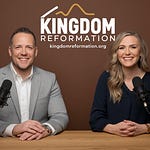Within Christian leadership, a perceived tension sometimes arises between two crucial spiritual movements: revival and discipleship. While both are essential to the health and growth of the church, they are occasionally seen as competing priorities rather than interconnected facets of a flourishing ministry. For church leaders, it is vital to understand how revival and discipleship can work together, complementing and reinforcing each other to foster lasting spiritual growth and transformation within our congregations.
Understanding Discipleship Culture
Discipleship culture embodies the methodical, day-to-day work of spiritual formation. It's characterized by intentional mentoring relationships, systematic Bible study, and the steady development of spiritual disciplines. Rather than existing as just another church program, discipleship forms the backbone of spiritual growth and community life.
In churches where discipleship thrives, you'll find believers deeply engaged in regular prayer practices, Bible study groups, and one-on-one mentoring relationships. These communities prioritize the practical application of biblical teachings, helping members navigate real-world challenges through a biblical lens. The focus extends beyond Sunday services to encompass daily spiritual practices and lifestyle choices that reflect Christian values.
What sets discipleship culture apart is its emphasis on long-term spiritual formation. Believers are encouraged to develop sustainable spiritual habits, engage in meaningful accountability relationships, and actively participate in their faith community. This approach recognizes that genuine spiritual transformation occurs gradually, through consistent practice and intentional growth.
The Nature of Revival Culture
Revival culture takes a different approach, often centering around powerful, transformative events and gatherings. These experiences typically feature passionate worship, dynamic preaching, and dramatic moments of spiritual breakthrough. Revival meetings can create an electric atmosphere where individuals experience profound spiritual awakening and renewal.
While these moments can catalyze significant spiritual change, they sometimes risk becoming isolated experiences rather than stepping stones to deeper spiritual growth. The energy and enthusiasm generated during revival events, though genuine and powerful, may not naturally translate into sustained spiritual development without proper channeling.
Bridging the Gap
The most effective church environments don't force a choice between revival and discipleship but instead create a synergy between the two. Revival experiences can serve as powerful catalysts, igniting passion and
commitment that discipleship processes can then nurture and develop. Think of revival as the spark that ignites the flame, while discipleship provides the steady fuel that keeps it burning.
This integrated approach allows churches to harness the transformative power of revival moments while ensuring long-term spiritual growth through consistent discipleship practices. The key lies in viewing these elements not as competing alternatives but as complementary forces that strengthen and enhance each other.
Practical Steps Toward Integration
Creating a balanced church culture requires intentional effort and strategic planning. Here are several key approaches:
Establish robust discipleship frameworks that can capture and channel the energy of revival moments into lasting spiritual growth.
Design revival events with clear pathways toward ongoing discipleship opportunities.
Develop leadership teams that value and understand both revival experiences and discipleship processes.
Create small group structures that can both facilitate powerful spiritual encounters and support steady spiritual development.
Build mentoring relationships that help believers process and integrate both their revival experiences and their daily spiritual journey.
Looking Forward
The future of church growth likely lies in successfully integrating both revival and discipleship elements. This balanced approach creates spiritually healthy communities where both immediate transformation and long-term growth are valued and nurtured.
Churches that master this integration often exhibit several key characteristics:
They maintain high expectations for both spiritual experiences and daily discipleship
Their leadership teams understand and value both immediate breakthrough and gradual growth
They create clear pathways from revival experiences to ongoing discipleship opportunities
Their community life reflects both the excitement of spiritual renewal and the steadiness of spiritual formation
Personal Application
For individual believers and church leaders, the challenge lies in embracing both the dramatic moments of revival and the steady work of discipleship. This might mean participating enthusiastically in revival events while maintaining consistent spiritual disciplines, or helping others navigate between mountain-top experiences and valley journeys.
The goal isn't to choose between revival and discipleship but to experience the fullness of both. By understanding and valuing both approaches, believers can develop a more complete and sustainable spiritual life that encompasses both dramatic moments of breakthrough and steady, consistent growth.
As churches and individuals navigate this balance, they often find that revival experiences become more meaningful when grounded in solid discipleship, while discipleship processes gain fresh energy and inspiration from revival moments. This harmonious integration creates a robust spiritual environment where both immediate transformation and long-term growth can flourish.
Kingdom Culture Assessment: Balancing Revival Fire and Discipleship Foundations in Your Church
Instructions
Rate each statement on a scale of 1-5: 1 = Strongly Disagree 2 = Somewhat Disagree 3 = Neutral 4 = Somewhat Agree 5 = Strongly Agree
Section 1: Revival Culture Indicators
Gatherings and Events
Our church regularly holds special services focused on spiritual breakthrough and renewal
We frequently experience spontaneous extensions of worship times
There is a strong emphasis on altar calls and immediate response moments
Our services often include time for supernatural manifestations of the Spirit
We regularly host revival-oriented conferences or special meetings
Spiritual Experience
Members often share testimonies of dramatic spiritual encounters
There is a strong focus on immediate healing and breakthrough
Prophetic ministry is a regular part of our church life
We emphasize powerful worship experiences
Spiritual warfare and deliverance are frequently addressed
Leadership Approach
Our leadership frequently calls for corporate seasons of fasting and prayer
Messages often focus on supernatural breakthrough and divine visitation
There's a strong emphasis on corporate prayer and intercession
We regularly bring in guest speakers known for revival ministry
Spontaneity in services is encouraged and welcomed
Section 2: Discipleship Culture Indicators
Structured Growth
We have a clear, systematic approach to spiritual development
Regular Bible study groups meet throughout the week
New believers are systematically integrated through a defined process
We offer regular training in spiritual disciplines
There are clear pathways for leadership development
Relational Development
We have an active mentoring/discipleship program
Small groups focus on application of Scripture to daily life
There are regular opportunities for one-on-one discipleship
Members are consistently connected to accountability relationships
We emphasize long-term spiritual formation relationships
Practical Application
Our teaching regularly includes practical life application
Members are equipped for personal Bible study and prayer
We emphasize character development and personal responsibility
Service and ministry involvement are expected of members
There's regular training in evangelism and outreach
Scoring Guide
Calculate Your Scores
Revival Culture Score: Add scores from questions 1-15
Discipleship Culture Score: Add scores from questions 16-30
Total possible for each section: 75 points
Interpret Your Results
Revival Score Interpretation
60-75: Very Strong Revival Culture
45-59: Moderate Revival Culture
30-44: Minimal Revival Elements
Below 30: Limited Revival Focus
Discipleship Score Interpretation
60-75: Very Strong Discipleship Culture
45-59: Moderate Discipleship Culture
30-44: Minimal Discipleship Elements
Below 30: Limited Discipleship Focus
Balance Analysis
Compare your scores:
Less than 10 points difference: Well-balanced culture
11-20 points difference: Moderate imbalance
Over 20 points difference: Significant imbalance
Action Steps Based on Results
If Revival Score Dominates
Develop structured discipleship pathways
Implement systematic Bible study programs
Strengthen small group ministry
Establish mentoring relationships
Create leadership development processes
If Discipleship Score Dominates
Create more space for spontaneous worship
Increase emphasis on corporate prayer
Include more testimonies in services
Plan regular revival-focused events
Strengthen prophetic and healing ministry
If Scores Are Balanced
Continue monitoring both aspects
Regularly assess integration points
Train leaders in maintaining balance
Document successful practices
Share your model with other churches
Reflection Questions
What surprised you about your scores?
Which area needs immediate attention?
What specific steps can you take in the next 90 days to improve balance?
How do your scores align with your church's vision and mission?
What resources do you need to strengthen your weaker areas?
















Share this post